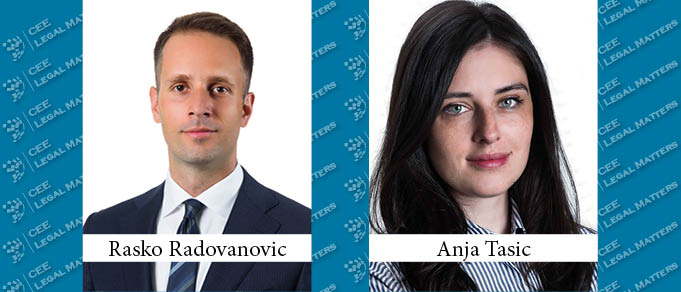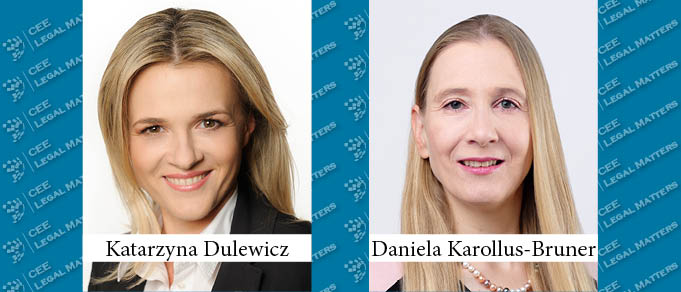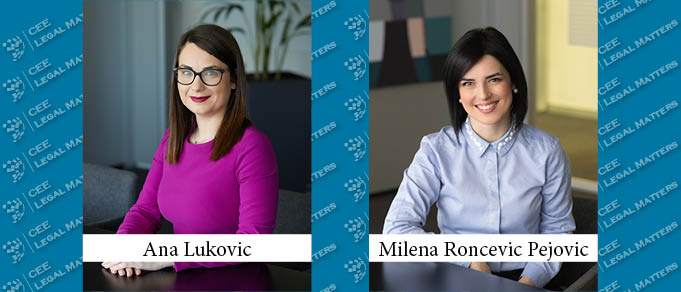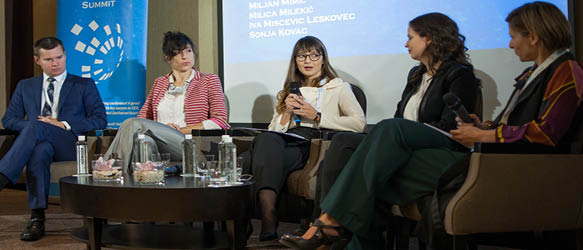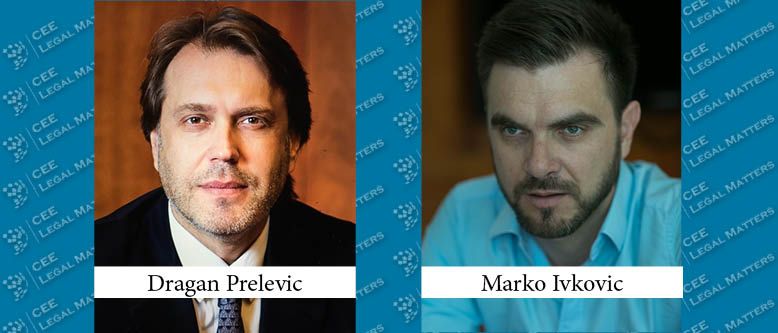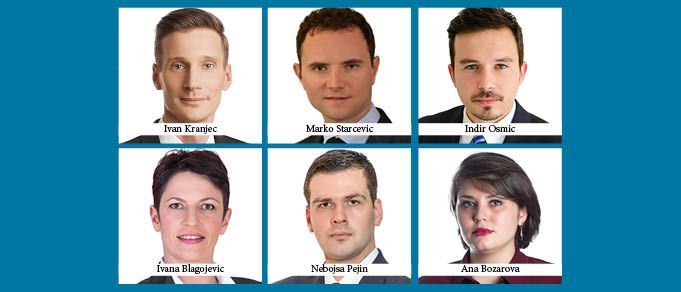The COVID-19 pandemic hit the Western Balkans right during a period of accelerating economic activity and a promising economic outlook for 2020. The rapid spread of the virus forced the governments of the Western Balkans countries to introduce protective measures, lockdowns, and temporary business shutdowns. These restrictions had a devastating direct economic impact on a wide range of sectors – particularly the hospitality and transport industries – and the measures had many indirect side effects that significantly decreased economic activity.
The State of the Montenegrin State Aid Control Regime
Montenegro first introduced a State aid control framework in 2011 in preparation for initiating the EU accession process. Almost ten years later, as the candidate country currently furthest along its accession journey, Montenegro has largely harmonized its State aid framework with the EU acquis. Still, the current level of enforcement and transparency leave a lot of room for improvement.
The Corner Office: Your Favorite Client Matter
In The Corner Office we ask Managing Partners across Central and Eastern Europe about their unique roles and responsibilities. The question this time around: ”What is your single most favorite client matter in your career?”
Rebuilding and Reshaping in the Aftermath of COVID-19
As Europe begins a tentative re-opening following several difficult months of quarantining, social distancing, and working-from-home, we spoke to CMS’s Warsaw-based Employment Partner Katarzyna Dulewicz and Vienna-based Dispute Resolution Partner Daniela Karollus-Bruner for their perspective on the process.
Overview of Montenegro’s Energy Sector
Montenegro is continuing to develop its energy sector by creating appropriate legislative, regulatory, institutional, and financial frameworks to encourage greater investment from the private sector. As part of this process, Montenegro is moving towards harmonizing its energy legislation with that of the European Union, the Energy Community, the World Energy Council, and the International Energy Agency, recognizing energy as a pillar of the country’s overall, sustainable, and long-term stable development, with evident positive macro-economic effects.
The Big Deal: Interview with CMS’s Eva Talmacsi About OTP/Societe Generale Acquisitions
Over the past few years CMS advised the OTP Bank Group on an extensive series of acquisitions across Bulgaria, Moldova, and former Yugoslavia. This series of separate deals was shortlisted for CEE Legal Matters’ CEE Deal of the Year in each of the countries involved, actually winning the 2018 Deal of the Year for Bulgaria and the 2019 Deal of the Year Award for Montenegro. We reached out to Eva Talmacsi, who led CMS’s multi-jurisdictional team, to learn more about the firm’s impressive work on OTP’s behalf.
Capital Markets in Montenegro
Contributed by Karanovic & Partners.
The Current Status of Montenegro’s Transportation Sector
The transportation sector is one of the most important factors for a country’s progress. Montenegro’s transportation sector has been transforming over the past few years towards the goal of harmonizing its infrastructure and services with European Union regulations. The Transportation Development Strategy of Montenegro for 2019-2035 (the “Strategy”) was adopted to regulate the guidelines and plans for future projects as well as to present the current state of the transportation sector in Montenegro. The Strategy aims to improve transportation in Montenegro and thus significantly enhance both tourism and business.
Mortgage Extension with Special Reference to the Montenegrin Supreme Court’s Legal Position
Claims from Loan Agreements are generally secured by establishing a mortgage over a certain property on the basis of a Mortgage Agreement or a Pledge Statement.
General Counsel as Business Advisors in the Balkans
In addition to their traditional role guiding companies through legal and regulatory waters and managing disputes, General Counsels are increasingly called upon to provide input on strategic matters. An expert panel at the second annual Balkan GC Summit considered how this change in the nature of the General Counsel role is manifesting itself in the countries of the former Yugoslavia.
Montenegro’s Harmonization with EU’s Digitalization Standards
A recent report found that, in 2018, 72.2% of Montenegrin citizens had online access from home, with Internet access via mobile phones increasingly common as well. In terms of mobile and Internet service, Montenegro is not behind other countries from the region or Europe at large, but digital technologies are used far less in areas such as economy or education. Information technologies are most commonly used for Internet browsing and social network communication, but are rarely used for communication with public administrations, local governments, and other service providers, which indicates the society’s insufficient digital advancement.
Energy in Montenegro
Even though Montenegro, located in Southeastern Europe on the Adriatic Coast and with a population of just over 600 thousand people, is a small country, its vast energy potential has been recognized by numerous international investors and by the Montenegrin Government.
Territorial Scope of the Montenegrin Competition Law
Article 2 of the Montenegrin Law on the Protection of Competition limits the law’s application to acts undertaken within the territory of Montenegro and acts undertaken outside of Montenegro which have as their object or effect the distortion of competition in Montenegro. In practice, however, the Law on the Protection of Competition (the “Law”) seems sometimes to be applied beyond its territorial scope.
The New Montenegrin Spatial Planning and Construction Act
In 2017, the Parliament of Montenegro adopted a new Law on Spatial Planning and Construction of Facilities (the “Law”), introducing major innovations in the field of spatial planning and construction. The Law entered into force on October 8, 2017.
Condition Sine Qua Non of Large Scale Infrastructure Projects
The plans to regulate public-private partnerships have been in the program of the Montenegrin Government for at least ten years now. Despite its central importance to both the public and private sectors, a specific legislative and institutional framework in the area of PPPs is still not in place. Instead, PPPs are regulated by laws from several sectors and by the Law on Concessions. The main authoritative bodies in charge of implementing PPP projects are the Privatization and Capital Investment Council and the Concession Commission.
A Night of Celebration at CEE Deal of the Year Awards Banquet in Prague
The winners of the 2017 CEE Deal of the Year Awards were announced at the first ever CEE Legal Matters Deal of the Year Awards Banquet last night in Prague. The biggest smiles in the joyous and music-filled celebration of CEE lawyering, perhaps, were on the faces of Partners from Avellum and Sayenko Kharenko, which, along with White & Case and Latham & Watkins, won the award both for Ukrainian Deal of the Year and CEE Deal of the Year for their work on the 2017 Ukraine Eurobond Issue (a story initially reported by CEE Legal Matters on October 2, 2017).
Top Six Tax Topics Across SEE
Slovenia: Fine-Tuning of the Tax System
In the beginning of 2018, Slovenia introduced several minor and mainly administrative changes to its tax legislation, mostly addressing and resolving inconsistencies in the legislation that had been detected in practice.
Guest Editorial: Balkan Legal Markets, and What it Means To Be a Lawyer in the Region
A decade ago, I was a Competition Law PhD scholar at the City Law School in the London borough of Islington sitting at my desk and watching a beautiful sunset over St. Paul’s Cathedral and thinking about career alternatives and opportunities in front of me.


